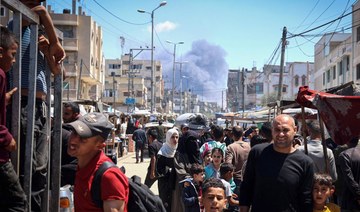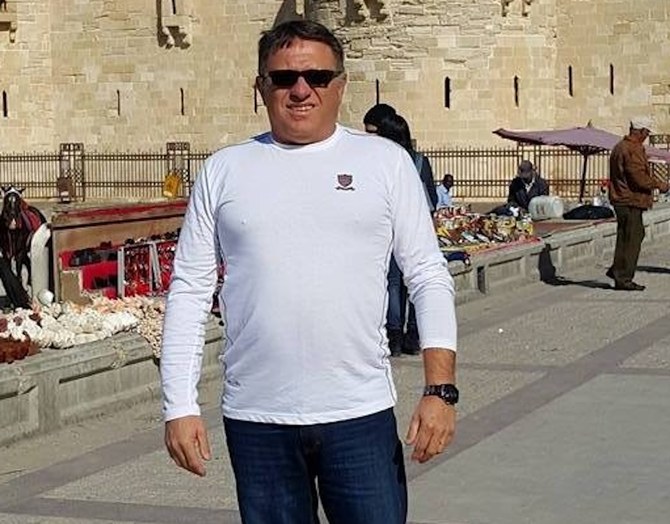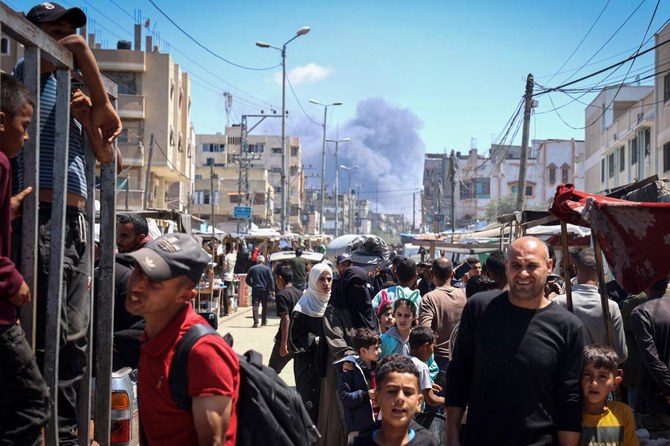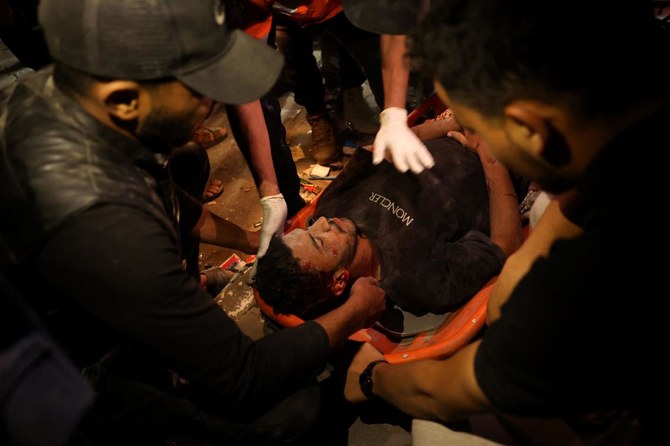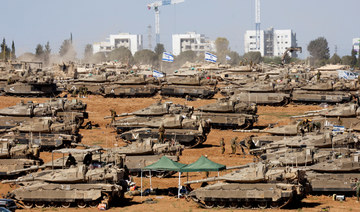DUBAI: Among the first steps taken by the new US administration was the reversal of the State Department’s designation of Yemen’s Houthi militia as a foreign terrorist organization.
The argument made by President Joe Biden’s advisers and many aid agencies is that not calling the Houthis (Ansar Allah) “terrorists” would facilitate the flow of humanitarian aid into Yemen.
Trouble is, for long the Iran-backed Shiite militia has prevented UN assistance from reaching the needy, regardless of how the US administration chose to label it.
Many see the pleas by the US now to the Houthis to stop behaving like a terrorist organization as too little too late. Goaded by a regime (Tehran) eager to be wooed by the Biden administration, the Houthis likely think they are on a winning streak and therefore should be dialing up the action, not down.

For evidence of this mentality, one need look no further than the near daily drone and missile attacks on civilian facilities in Saudi Arabia, although thanks to the Kingdom’s robust air defenses, the casualties have been minimal.
Since they launched an offensive against the UN-recognized government and took control of the capital, Sana’a, and other parts of northern Yemen in 2014 and early 2015, the Houthis have used banned antipersonnel landmines, fired artillery into Yemeni cities, and indiscriminately launched ballistic missiles into Saudi Arabia.
Noting that Wednesday’s drone attack on Abha airport in the Kingdom’s southwest, which set a civilian aircraft ablaze, happened just days after Martin Griffiths, the UN special envoy for Yemen, visited Tehran, political analyst Hamdan Al-Shehri said Iran is pushing the Houthis to carry out attacks “because Tehran is not looking for any solution to the crisis.
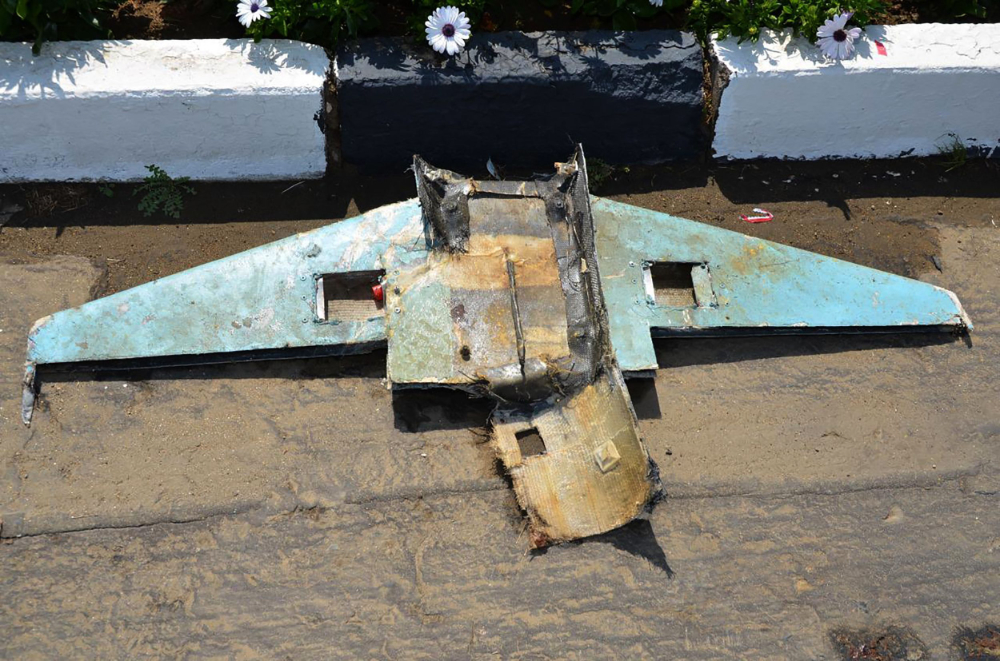
Wreckage of a drone used in the Houthi attack on Abha International Airport in Asir province. (Saudi Ministry of Media photo)
“It would be very strange if the Biden administration keeps the Houthis off the terror list because over the past three weeks, we have seen many attacks from the Houthi side toward Saudi Arabia and also inside Yemen,” he told Arab News.
Indeed, with the surge in Houthi attacks on population centers, one can see a pattern of behavior that undoubtedly constitutes terrorism in its purest form.
Consider the militia’s well-documented tactic of delaying permission for distribution of aid and holding prospective recipients hostage to its demands.
At the beginning of 2020, according to an Associated Press (AP) news agency report, the Houthis blocked half of the UN’s aid-delivery programs in Yemen, “a strong-arm tactic to force the agency to give them greater control over the massive humanitarian campaign, along with a cut of billions of dollars in foreign assistance.”
THENUMBER
16.2 million Yemenis facing food insecurity.
With the economy in free fall, the UN aid effort is a major source of foreign currency into Yemen. The UN received about $3 billion in 2019 in international donations for its campaign.
The Houthis had made granting access to areas under their control contingent on a number of conditions that would have given them greater sway over who received aid, the AP report said.
The Houthi demand for two percent of that budget would have diverted $60-$80 million into the coffers of its so-called aid-coordination agency, SCMCHA. “Harassment, intimidation and suspected embezzling of funds by Houthis have been going on for years, aid workers said, and have gotten worse since the rebels created their aid coordination agency in early 2018,” AP reported.
Houthi extortion and interference came under renewed scrutiny toward the end of 2020, in a report titled “Deadly Consequences,” in which Human Rights Watch (HRW) blamed the militia in particular for creating numerous obstacles for humanitarian groups operating in Yemen.
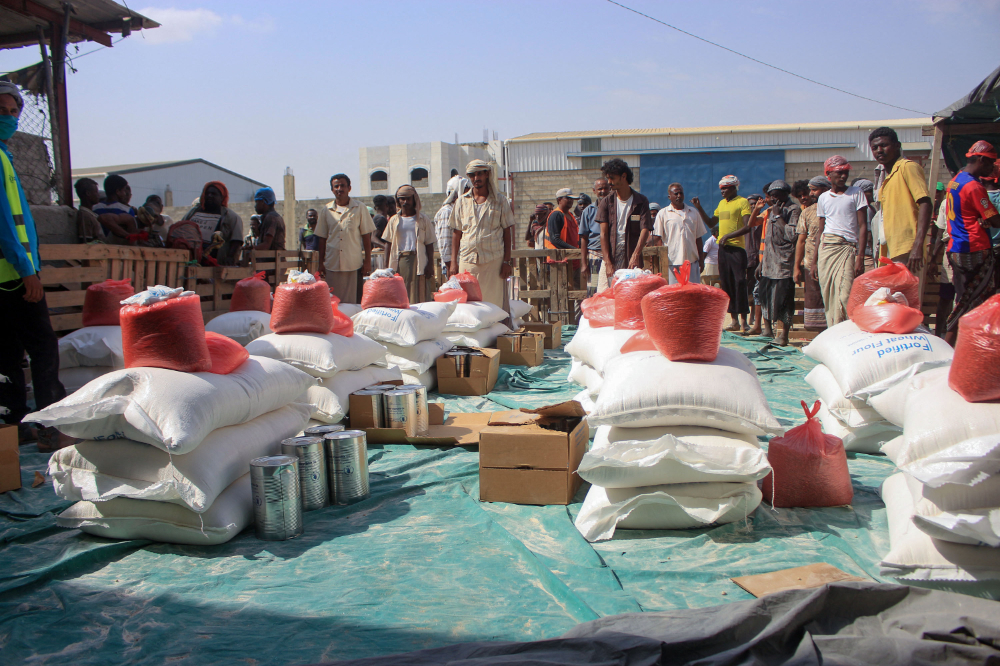
Obstacles posed by the Houthi militia has often prevented international food aid from reaching people displaced by the conflict in Yemen. (WFP photo)
“Efforts to prevent the spread of COVID-19 and respond to other urgent health needs in Yemen have been severely hampered by onerous restrictions and obstacles that the Houthi and other authorities have imposed on international aid agencies and humanitarian organizations,” the HRW said.
“Since May, the Houthis have blocked 262 containers in Hodeidah port belonging to the World Health Organization as well as a large shipment of Personal Protective Equipment (PPE) for the COVID-19 response.
“The Houthis have tried to use some of the shipments as bargaining chips in negotiations relating to the lifting of other aid obstacles and agreed to release 118 of the containers in late August or early September.”
Not mincing words, the HRW said: “The Houthis have a particularly egregious record of obstructing aid agencies from reaching civilians in need, at least in part to divert aid to Houthi officials, their supporters, and Houthi fighters. In 2019 and 2020, aid workers had to push back against Houthi officials insisting that aid groups hand over assets, such as cars, laptop computers, and cellphones to the Houthis at the end of projects.”
Four months after the HRW report came out, when Mike Pompeo, the outgoing US secretary of state, announced on Jan. 10 the Houthis’ well-earned designation as a global terrorist entity, the US Treasury Department’s Office of Foreign Asset Control issued several general licenses and exemptions aimed at mitigating the humanitarian and commercial impacts of the decision.
This was important as Yemen depends on imports to bring in 90 percent of its food and 80 percent of the population of 29 million are in need of aid.
However, the challenges for aid agencies remain daunting as the Houthis control areas where most of Yemen’s population lives and the need for aid is greatest.

WFP is aiming to reach 1.7 million children and mothers at more than 3,000 health centers across Yemen. malnutrition rates have increased with each year of war in Yemen. (WFP photo)
As the HRW’s “Deadly Consequences” pointed out: “The Houthi authorities’ onerous bureaucratic aid requirements without justification have blocked millions of Yemenis from life-saving aid. Although not the recognized government of Yemen, the Houthis should nonetheless act to protect the human rights of all people in territory they control.”
In the past, the Houthis have withheld visas and permissions for equipment and supplies and refused to grant clearances for UN missions to move through areas controlled by them.
Agency management’s willingness to concede some Houthi demands predictably emboldened its leaders to push for more. Now, with the removal by the Biden administration of the militia from the US terrorist list in return for no concessions, the gloves are definitely off.
“I believe, in sum, that it is a message sent by Iran to the US, that Iran controls the militia’s decisions and it doesn’t want any relations between the Houthis and the US,” Badr Al-Qahtani, Yemen editor of Asharq Al-Awsat newspaper, told Arab News, referring to the attack on Abha airport, some 120 kilometers north of the Yemen border.
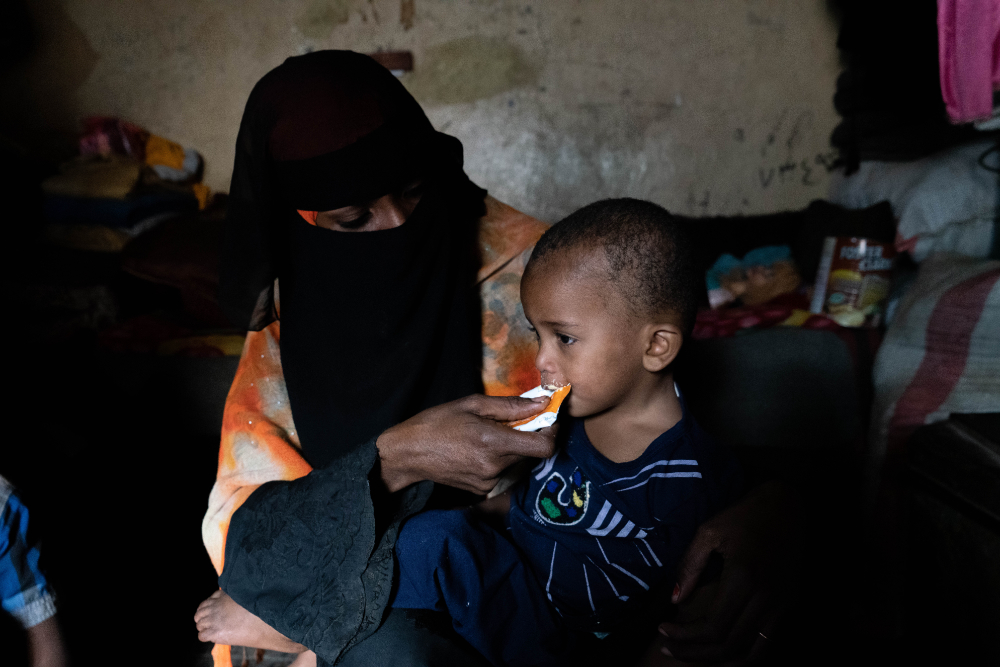
An estimated 16 million Yemenis are going hungry and almost 50,000 people are projected to be under famine by June this year. (WFP photo)
“When Washington takes positive steps towards the Houthis, even if the Houthis wish to reply positively, they can’t, because they don’t have a say in making decisions.
Al-Qahtani believes Iran wants Yemen to be part of the agenda if it can get the US back to the negotiating table. “I believe that UN envoy (Griffiths) as well as the US special envoy (Timothy Lenderking) will seek to separate the two issues,” he told Arab News, “because they can’t ignore the fate of 29 million Yemenis, while they are the main victims of war, conflict and crisis. Or leave their fate to be merely a file among many other files.”
Al-Qahtani added: “I believe that this is the (real) conflict that we are currently witnessing — a conflict of files, so to speak.” Meanwhile, an estimated 16 million Yemenis are going hungry and almost 50,000 people are projected to be under famine by June this year.













